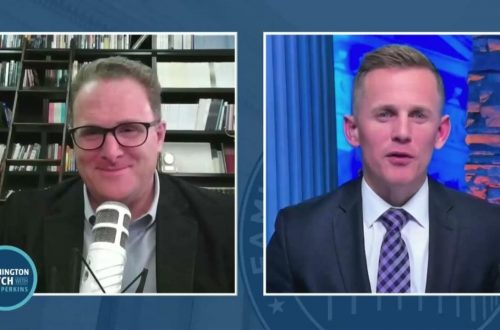Stephen L. Carter of Christianity Today expresses a bit of cynicism concerning evangelicals who hold to Originalism as a judicial philosophy (see “The ‘Judicial Philosophy’ Dodgeâ€). He thinks the very notion of having a judicial philosophy is a “slippery†business at best. All the talk about opposing judges who “legislate from the bench†and supporting judges who interpret the Constitution according to “original intent†is just code for one’s position on abortion. For Carter, the popular distinction between Originalism and the “Living Constitution†approach is nonsense—“not merely nonsense, but nonsense on stilts.â€
Carter may be correct that some evangelicals support justices based on outcomes and not based on actual judicial philosophy. But this is a far cry from saying that the distinction between Originalism and the “Living Constitution†approach is nonsense. Carter is not giving enough credit to those of us who really do hold to a consistent Originalist philosophy and who see the deconstruction of traditional texts to be one of the central threats to morality and justice in our society. For us, original intent is more than just a “catchy phrase.†It is the only moral way to interpret texts (see Vanhoozer, Is There a Meaning in This Text?).
I’m a bit at a loss to understand where Carter is going in this piece. Ostensibly, he is trying to show that both liberals and conservatives can be disingenuous in their taking up the mantle of a judicial philosophy. Yet, both of the (somewhat strange) hypothetical scenarios he dreams up to make his point seem to be directed against those who hold conservative political views. It makes him sound like one of those “above-the-fray†types who take up the rhetoric of critiquing both sides but end up just criticizing the conservatives (think Jim Wallis, and all major media outlets).
Carter’s opinion on Bush v. Gore also makes me wonder where he is coming from. He writes, “Yet it is not only liberals who hand down results that seem inexplicable except as exercises of arbitrary will. As I have mentioned in these pages before, the Supreme Court’s 2000 decision in Bush v. Gore certainly seems cut from the same cloth.†Here, Carter echoes the rhetoric of every left to center-left politician who has every complained about the results of the 2000 Presidential election. Not only is he tipping his hand with respect to his politics, but he’s also missed the logic of Bush v. Gore.
If he thinks that Bush v. Gore is a trouncing of the original intent of the Constitution, then he doesn’t understand Bush v. Gore. Contrary to popular misconception, the decision in that case was not just a willy-nilly vote among nine justices on who they think should be President (with President Bush edging out Gore 5-4). Gore was suing to have ballots recounted only in counties where he thought he could uncover some more votes. This of course means that ballots cast in Democrat-filled counties would have been given more careful consideration than ballots in other counties. This was obviously a violation of the “equal protection†clause of the fourteenth amendment. Seven of the nine Justices recognized this violation and said so in their opinions. Only five of the seven could agree on how to address the violation, and that was to stop the recount in the Democrat-filled districts. If Gore would have sued for a statewide recount, there likely would not have been a fourteenth amendment violation.
But I digress . . .
My main point is that Carter’s piece is off base. He needs to give us Originalists a little more credit.



